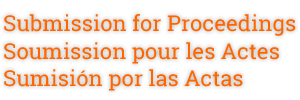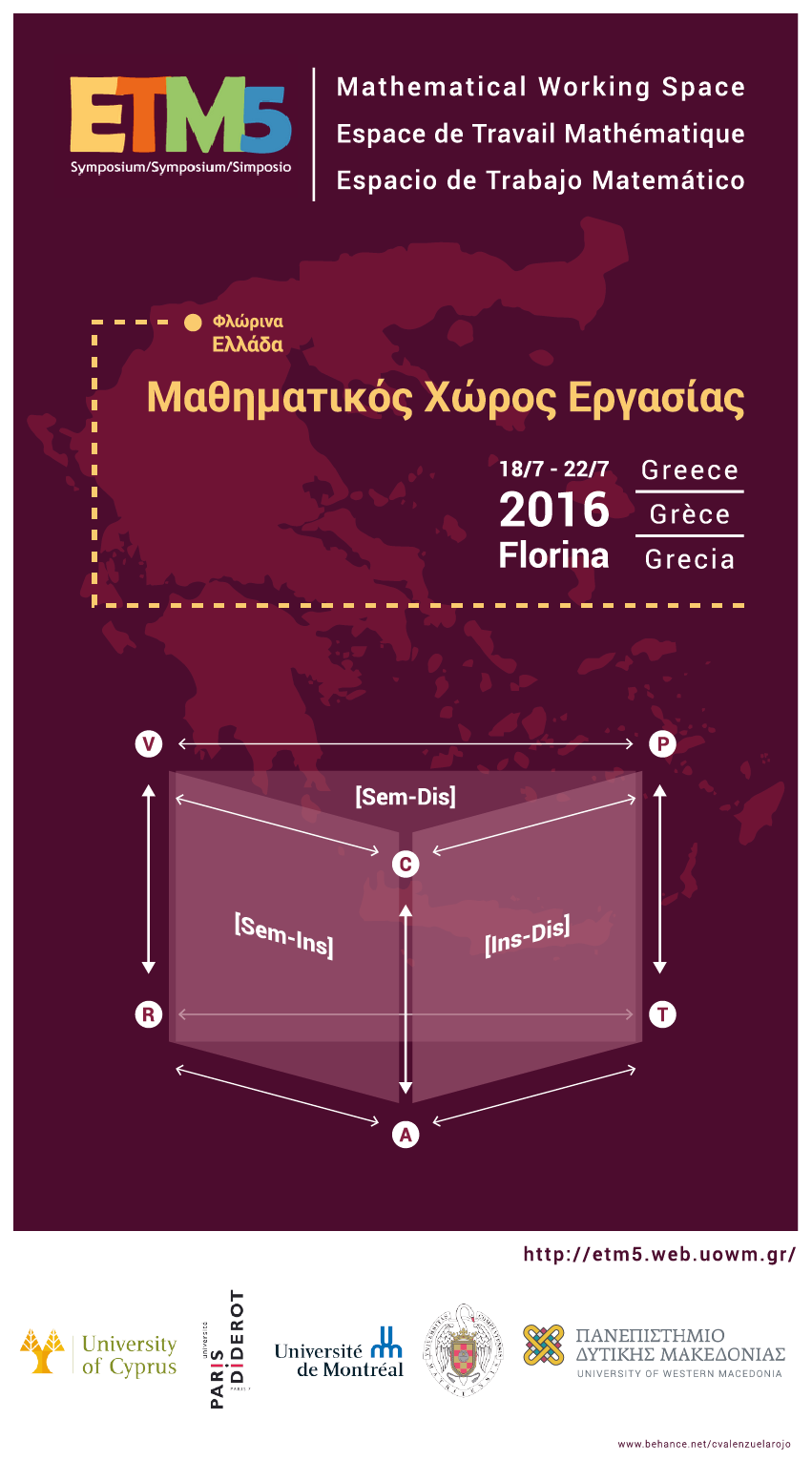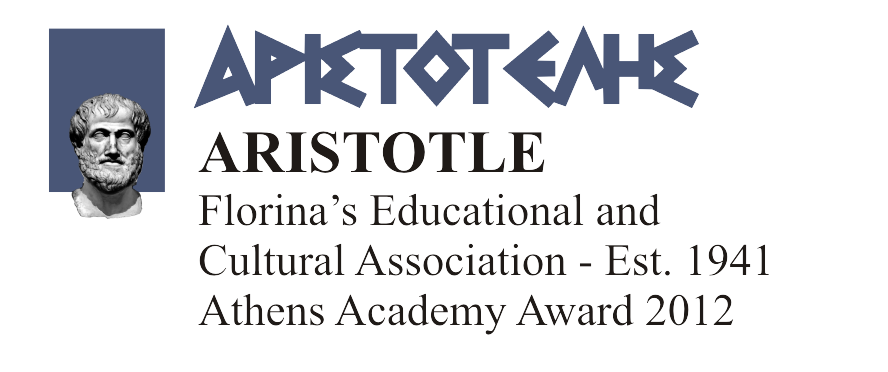Workshop
An approach of the MWS for analysis
Elizabeth Montoya Delgadillo, Pontificia Universidad Católica de Valparaíso, Instituto de Matemática, elizabeth.montoya@pucv.cl; http://ima.ucv.cl/academicos/elizabeth-montoya/
Laurent Vivier, Paris Diderot, Laboratoire de Didactique André Revuz, laurent.vivier@univ-paris-diderot.fr; http://www.lar.univ-paris-diderot.fr/user/70
Abstract
In this workshop, we shall introduce the participants to the MWS model for the domain of Analysis. It will be proposed activities which will allow to analyze and to identify the essential elements of this frame which considers the mathematical work in its semiotic, instrumental and discursive dimensions while distinguishing epistemological and cognitive aspects.
Group and collective works will be organized so that the participants can discuss the reach and the implications of the distinction of the various types of MWS, personal, suitable and of reference, the plans favored in the realization of a task and paradigms at stake.
We shall propose a first work to identify the specific paradigms of the analysis:
- A distinction between the standard analysis and the no standard analysis and the influence of this reference paradigm on the construction of the mathematical objects, the implications for learning and teaching;
- An identification of three paradigms of this domain that will be used for analyses and that influence widely the mathematical work.
In this workshop, we shall lean on tasks and productions of high school students and university students as well as mathematics teachers that will be analyzed with the MWS model. Material was obtained from questionnaires and from classroom videos (original in Spanish or French, with translation in English) on emblematic objects of Analysis like real numbers, functions and tangents. Then one can understand the role of : the semiotic genesis with signs and representations, the instrumental genesis, particularly with a situation using a dynamic geometry software, and the discursive genesis, with the possible permitted reasoning.
For the organization of the workshop, there are planned individual working time, works in group and collective discussions. We suggest that participants bring a laptop computer equipped with the software Geogebra (or a similar software) for group work (group constitution will be made in order to have at least a computer by group).
At the end, we shall propose articles and a bibliography in which the workshop lean on so that every participant can deepen the questions related to the Analysis MWS.









